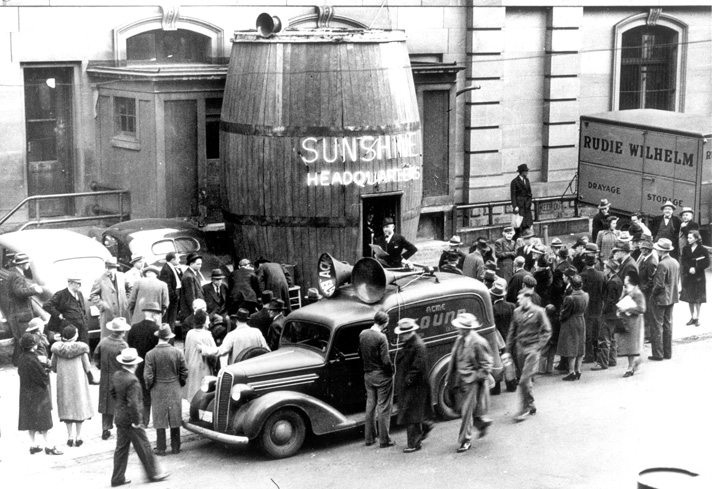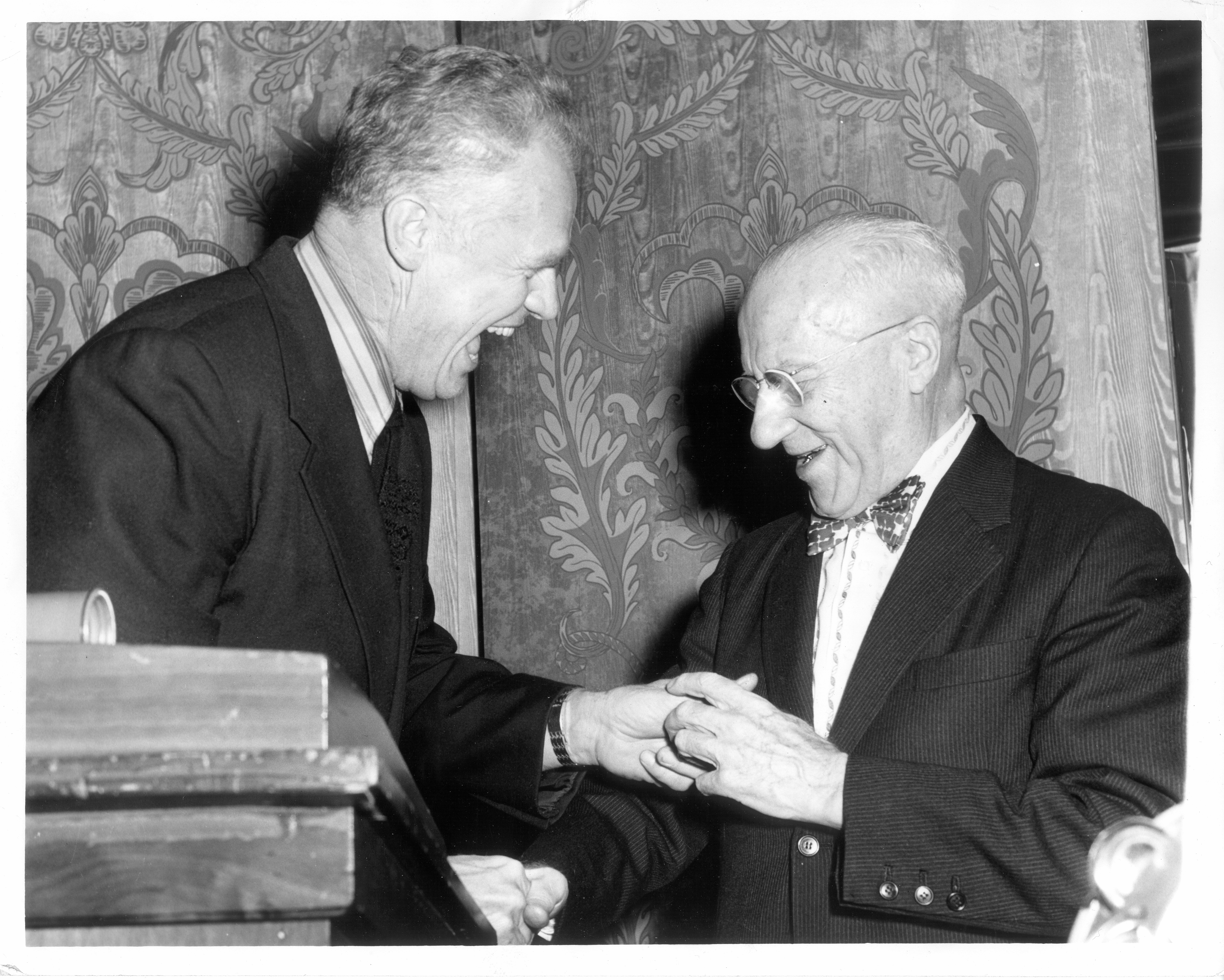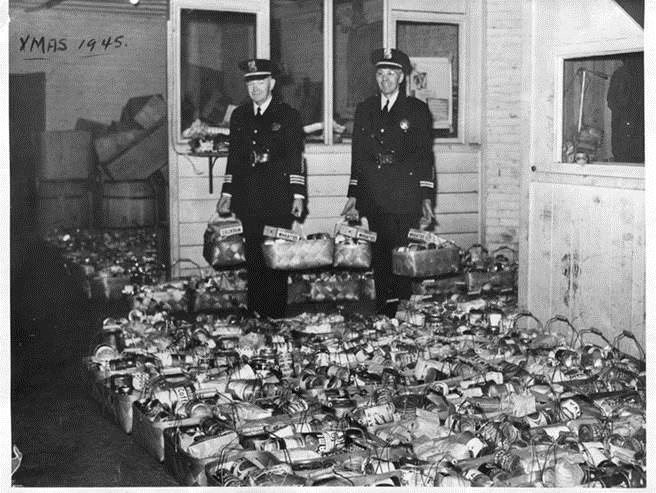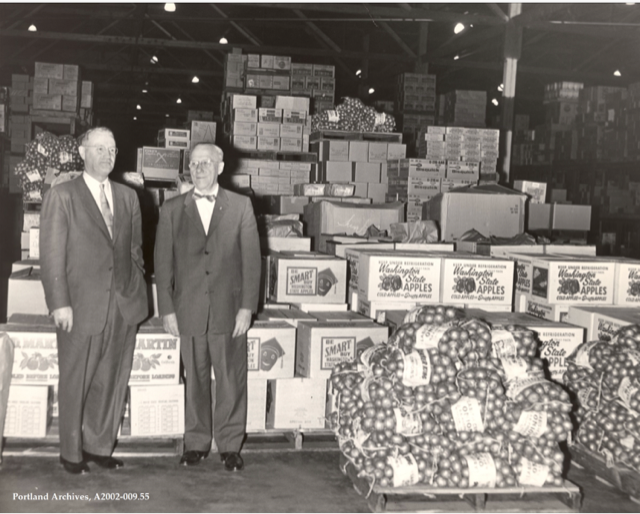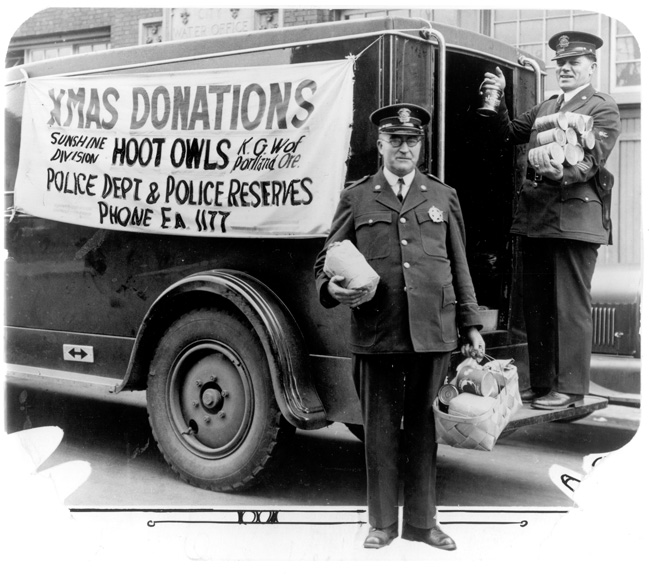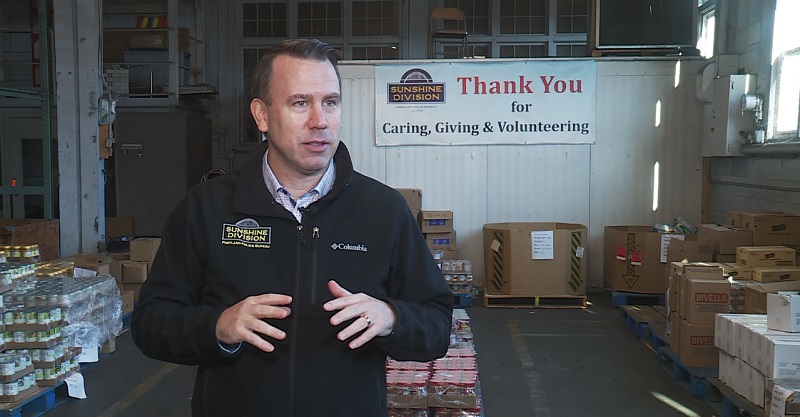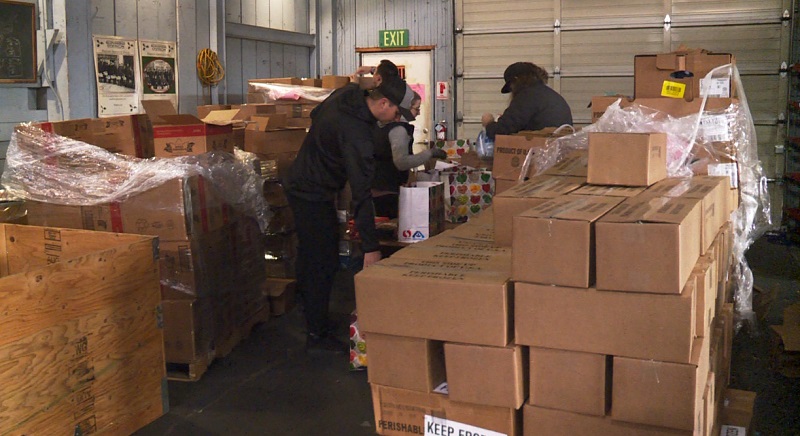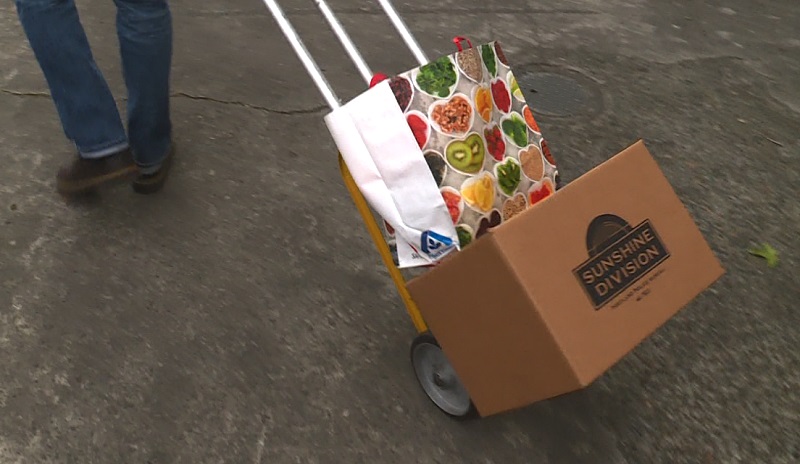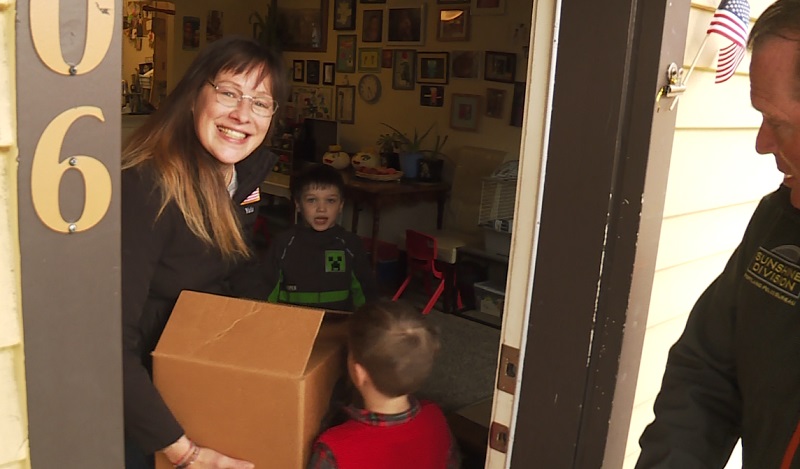PORTLAND, Ore. (KOIN) — It’s said necessity is the mother of invention. That is how the Sunshine Division was born 100 years ago.
Back in 1922, Portland police responded to a crisis and identified a family in need of food. Then-Mayor George Baker decided the city needed to help more families and during the holidays in 1923 things kicked into high gear.
“In Christmas of 1923 a number of police officers and reserves and city officials made sure families in Goose Hollow got a basket of food on Christmas Eve,” said the current Sunshine Division Executive Director Kyle Camberg. “That was our first home delivery. We consider that when the tradition became real.”
Initially dubbed ‘Mayor Baker’s Sunshine Boys,’ a radio variety show called The Hoot Owls devoted a regular segment to soliciting food and funds from listeners.
Over the decades, ‘The Boys’ became the Sunshine Division, taking in food donations and putting together boxes for families.
In the 1960s the Sunshine Division became an official non-profit. At that time, the Sunshine Division also had a free clothing room along with mattresses and firewood for people in need.
Then-Commander Bud Lewis said it was a 365-day-a-year effort.
“Donations have gone up a little and food drives have gone up a little. Things have gotten normalized now. We’re serving 4 times more than we did in 2019. That’s why we need the help.
— Executive Director Kyle Camberg
“Because our publicity is predicated on the Christmas season, they think we only work then, and nothing is further from the truth,” Lewis said at that time. “We do function year-round. Our effort as I indicated to you is a great deal more during the year.”
Portland police officers have remained an integral part of identifying emergency situations. Since Sunshine’s inception, there have been food boxes at every precinct that officers can deliver as they come across families in crisis.
Through the 1970s, ’80s, ’90s and 2000s, the Sunshine Division kept growing to meet the demand. Families stopped at the North Thompson and Southeast Stark warehouses for food boxes.
In 2019, a normal week had 330 families coming to the 2 locations. Then the pandemic hit and that number jumped to 1000 families a week.
“It’s been startling to me how many people are coming to our front doors and the fact that that has not only receded, it has grown,” Camberg told KOIN 6 News.
They also launched a home delivery program during 2020 as they realized many elderly and immunocompromised people couldn’t get to their warehouses. The Sunshine Division now averages about 400 deliveries a week in addition to the 1000 families who come to the warehouses weekly.
“So, 1400 compared to 330 — that’s our new normal,” Camberg said. “Donations have gone up a little and food drives have gone up a little. Things have gotten normalized now. We’re serving 4 times more than we did in 2019. That’s why we need the help. We need more food drives, more contributions because 4 times is a really tough number to meet.”
The KOIN 6 Day of Giving with the Sunshine Division
takes place Thursday, December 1.
They need help more than ever.
Just 3 days before Thanksgiving, the Sunshine Division had its single-busiest day in its 100-year history. More than 1100 people stopped by the warehouses to pick up a food box.
Sunshine plans to deliver 15,000 turkey meals between Thanksgiving and Christmas this year. They actually ran out of turkeys to give out in mid-November because the demand was so high.
“The only way that this organization has ever helped anyone for 100 years is because local individuals, companies care. They donate their time, they donate money, they donate food,” he said.
Food and monetary donations date back a century for a non-profit that started out making some families’ holidays a little brighter.
